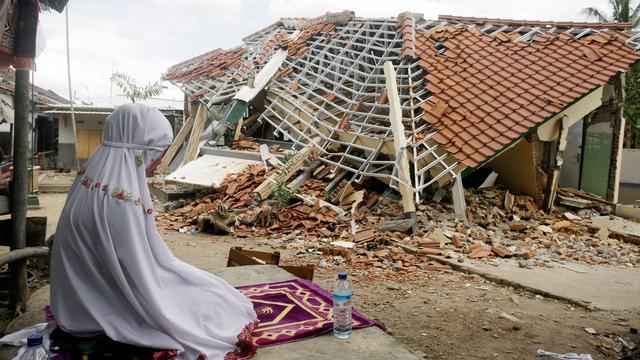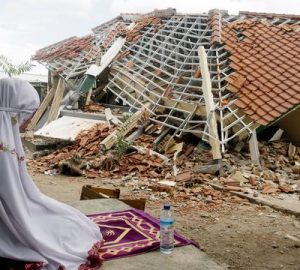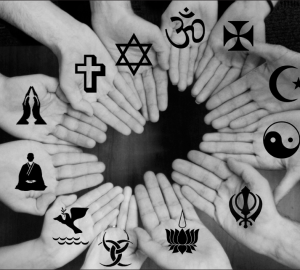In life, sometimes we are faced with conditions that are not entirely in accordance with what is desired. Like two sides of a coin, happiness and sadness is a necessity. Someone who views the disaster as something natural, that it all can happen according to the will of God, tends to be easy to be pleased with His will. Conversely, if someone views that disaster as a form of God’s curse as well as a burden, then he tends to hate the coming of disaster and not infrequently, making negative activities as a form of vengeance.
“Alladzi khalaqal mawta wal hayata liyabluwakum ayyukum ahsanu ‘amala,” the Qur’an surah al-Mulk / 67: 2 has actually been very clearly proclaimed that God is the Most Holy — making death and life is something that is certain to occur in all living things, so that Allah knows for certain who has the best deeds (ahsanu ‘amala).
The use of lafaz “ahsan” in surah al-Mulk / 67: 2 implies that the world is a place for competing to do good so that the essence, trials are as decoration and ‘stepping stones’ that should be there to test how high and how strong one’s faith is. Allah does not use lafaz “hasan” (good) but “ahsan” (best) which means that the best deeds are actions that bring a servant closer to his Lord – which usually happens when a servant is struck down by a disaster.
If we want to contemplate with a clean soul, the worldly test is also actually a place for humans to get to know their Lord (ma’rifatullah) because when disaster comes, humans tend to worship and humble themselves to the Great Substance. Moments of disaster also make a servant inclined to not have any power, until he is aware that there is an Almighty Substance that can eliminate all the difficulties and difficulties of life.
Surah al-Mulk / 67: 2 above finally completed by the guidance of the next verse, surah al-Baqarah / 2: 154-155. Two verses that deal directly with calamity and the types of calamity that usually afflict humans. “And truly, We will place upon you (all kinds of tests) namely khauf (fear), wal ju’i (and hunger), wa naqsin minal amwal (and lack of possessions), wal anfus (loss of life) wats tsamarat (and foodstuffs / fruits). And give good tidings to those who are patient “.
The five types of disasters that usually happen to humans as described above are things that are usually feared by most humans; fear (worry) about sustenance, fear of losing loved ones, fear of lack of property, fear of hunger, and fear of lack of food (food crisis). These fears are a necessity that must be faced by humans.
However, one thing we need to know is that God certainly does not allow His servants to face the five types of calamities above themselves. The passage above is closed by a guarantee that God gives glad tidings to those who are patient. Which group is included in the category of people who are patient? The answer is in the editorial of the next verse; “(Patients who are patient), those are those who, when a disaster strikes, they say ‘Indeed, we belong to Allah and to him we return”.
Inna lillahi wa inna ilaihi raji’un – a familiar word that we hear when a relative or family member dies, but did we know that lafaz is not only read when we lose someone we love, but also when we are struck down by fear of the five things mentioned above.
Lafaz istirja above at the same time gives us teaching and a hidden dimension from a disaster; the full statement and surrender of God’s will — that as human beings, tawakkal (the surrender of sincerely surrender to God) is necessary because at that moment, God’s help comes to those who are prejudiced towards God’s destiny and then be patient with it.
Artikel ini juga tersedia dalam bahasa:
 Indonesian
Indonesian





